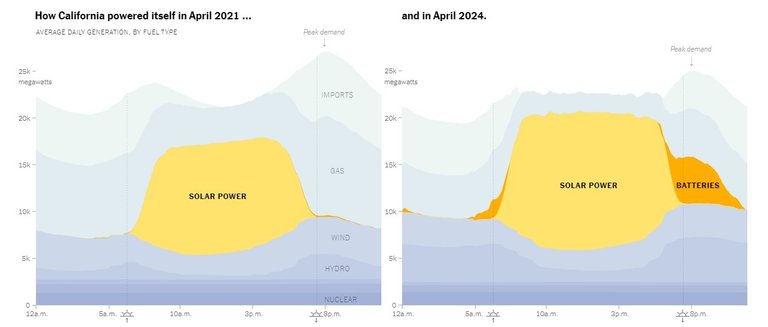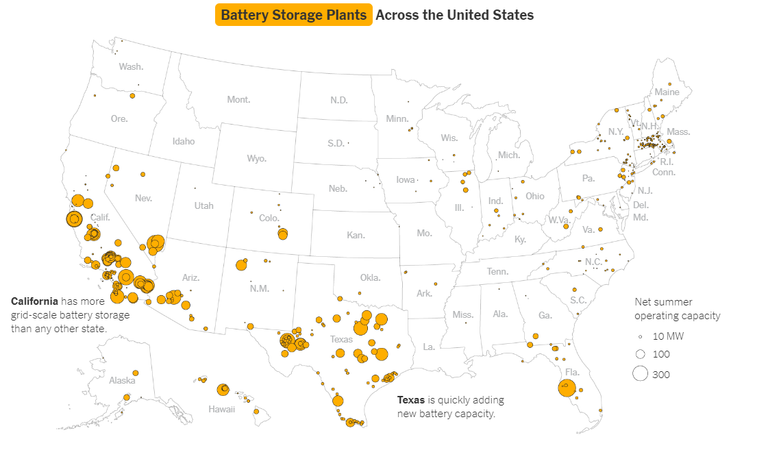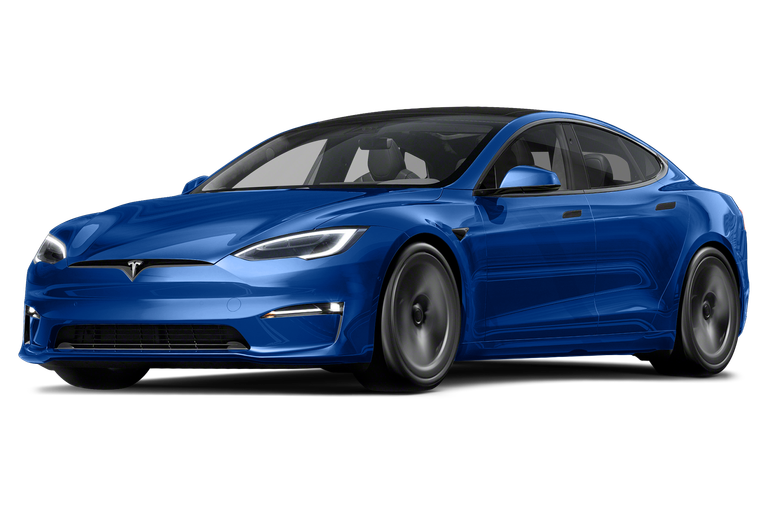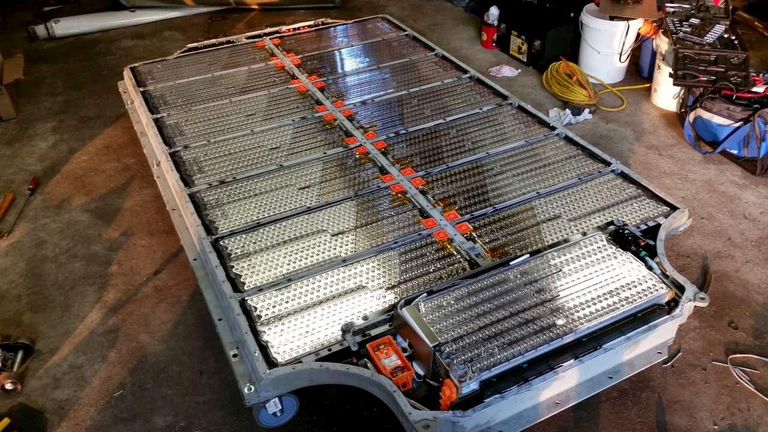So you like an EV?
Part of town I live in, we see a lot of EVs, mostly Teslas. Yeah, middle of Houston, TX it is rather hard to believe, but it is true. I have nothing against EVs, although as many of you know that I work in the Oil and Gas industry as an explorer. Yeah, I work for Big Oil. There is nothing wrong with that, as I deal with the backlash all the time, in fact, in my position, I am profressionally trained on how to handle that. I am a scientist first, a geologist, and then I am an oil man. I live off the grid, for more than 2 years now, as my home runs on rooftop Solar Panels. I said all these because I hope you can see many conflicts there already :) The thing is; world is typically not what you think it is. Often it is very different and full of complications.

Let us start a little further back. Let us start from the source. Also let us mention the conclusion first: EVs, especially Teslas does indeed have lower carbon foorprint, compared to say the Ford Bronco that I drive, but it requires that you must drive the EV the right way, and their lies the difference. Alright, enough disclaimer, let move on. The above plot is overall power consumption in the most populus state in the United States, the sunny California. Notice the obvious: how much and 'when' the solar power is generated, and when the peak demand is (in the evening around 8pm). Back in 2021 battery technology, especially large scale, was inadequate. However, in 2024, notice how the battery storage from solar contributed to the peak demand, thereby reduced the import requirement from other states. The point of this plot is that we are beginning to use a lot of batteries. Notice the concentration of Solar Power and Batteries around California and Texas. The two most sunny spots, tech hub and population centers.

Battery and overall power requirements
The most important thing in a EV that is different from a gasoline powered car is obviously the battery. Rest of the thing are mostly the same. So what is in the battery and how it is made that makes the difference.
That is a Tesla Model S battery above. It is at the bottom of the chasis basically right on top of the axel connecting the wheels. In 2024 model its capacity is 100 KWh, and a range of about 400 miles. Let me tell you something 100 KWh is a lot of energy! On a good sunny day I generate about 30 KWh total! I have 21 panels and a Tesla Powerwall, and this is the sunniest month I can find this year, and the total production is 857 KWh in 30 days; or 28.5 KWh on average! If I had a Tesla Model S; it would take 3+ days of solar energy to charge that battery full!

So here are my choices to power that Tesla, if I power it full every day fully on solar:
3X my panels! But I don't have that much roof space, especially on the south facing roof
Use the regular grid to power
Here is the problem with 3X panels: I will need two more power walls. Since it took me $50K to install the current system. I have looking at $100K more, total about $150K. Now you can say, I am not going to drive 400 miles per day. My daily drive is probably averages 20 miles. So I don't really need that. But still if I power my car, I can't really ensure that I won't take power off the regular city grid, because my house need power too, and with my current system I am just about self-sufficient over the year on average.
Battery Components
Tesla sources its battery components from a variety of suppliers around the world to ensure a steady and reliable supply of materials. Here are some key details:
Lithium: Tesla sources lithium from several suppliers, including Albemarle in Australia and Livent in Argentina. These companies provide lithium hydroxide, which is essential for Tesla’s high-energy density cells
Nickel: Tesla has long-term agreements with major nickel producers like Vale in Canada and BHP Nickel West in Australia. Nickel is a critical component for the cathodes in Tesla’s batteries
Cobalt: Tesla sources cobalt from companies like Glencore, which operates mines in the Democratic Republic of Congo (DRC). Tesla is also working to reduce its reliance on cobalt due to ethical and environmental concerns associated with mining in the DRC
Other Materials: Tesla also sources other essential materials like graphite and aluminum from various global suppliers to ensure the production of its battery cells
Tesla’s approach to sourcing these materials includes direct relationships with mining companies, which helps the company monitor quality and ensure responsible environmental and social practices.
It's the Cobalt that is the problem. Mining is DRC is an ethically challenging element. Let me explain:
Glencore’s mining practices in the Democratic Republic of Congo (DRC) have been a subject of scrutiny and efforts towards improvement. Here are some key points:
Artisanal and Small-Scale Mining (ASM): Glencore has engaged with communities, the DRC government, and other stakeholders to address issues related to ASM. They support the Fair Cobalt Alliance (FCA), which aims to transform ASM practices, eliminate child and forced labor, and promote responsible mining
Ethics and Compliance: Glencore has faced allegations of corruption in the past but has reached agreements with the DRC government to address these issues. They have implemented an Ethics and Compliance Program to foster integrity and transparency in their operations
Trouble is most Tesla owners (or EV owners) are ethically sound individuals. It is difficult to sustain that groove when your raw materials comes from DRC.
Finally the Carbon Footprint
A carbon footprint measures the total amount of greenhouse gases, primarily carbon dioxide (CO₂), that are emitted directly and indirectly by an individual, organization, event, or product. It is usually expressed in terms of equivalent tons of CO₂ per year.
Key Components of a Carbon Footprint:
Direct Emissions: These come from sources that are directly controlled, such as emissions from burning fossil fuels for heating, transportation, and manufacturing
Indirect Emissions: These are associated with the production and consumption of goods and services. For example, the emissions from producing electricity used in homes and businesses
Why It Matters:
Environmental Impact: A higher carbon footprint contributes more to global warming and climate change
Sustainability: Reducing carbon footprints is crucial for achieving sustainability goals and minimizing environmental damage

The carbon footprint of a Tesla car can be broken down into several stages: production, operation, and end-of-life recycling.
Production
- Battery Manufacturing: The production of lithium-ion batteries is energy-intensive. For example, creating a battery pack for an electric sedan can produce between 2.5 and 16 metric tons of CO2, depending on the energy sources used in the production facilities.
- Vehicle Assembly: The overall manufacturing process of an electric vehicle (EV) generally has a higher carbon footprint compared to a gasoline-powered car due to the energy required for battery production.
Operation
Driving Emissions: While driving, Tesla cars produce zero tailpipe emissions. However, the carbon footprint depends on the source of the electricity used for charging. If the electricity comes from renewable sources, the carbon footprint is significantly lower compared to electricity generated from fossil fuels. I gave my personal example in this case. It is im
Annual Emissions: On average, an EV like a Tesla produces about 2,817 pounds of CO2 equivalent per year, which is lower than the emissions from traditional gasoline vehicles.
End-of-Life
- Recycling: Tesla has initiatives to recycle battery components, which helps reduce the overall carbon footprint. The recycling process itself also has an environmental impact, but it is generally less than the impact of producing new batteries from raw materials
Overall, while the initial production of a Tesla car has a higher carbon footprint, the total emissions over the vehicle’s lifetime are typically lower than those of a comparable gasoline-powered car, especially when charged with renewable energy.
According to the U.S. Department of Energy's Alternative Fuels Data Center, the average EV produces 2,817 pounds of CO2 equivalent in a year of driving. A PHEV produces an average of 4,824 pounds of CO2 equivalent over the same period, while a hybrid produces 6,898 pounds. A pure gasoline-powered vehicle generates an average of 12,594 pounds of CO2 equivalent each year. Those numbers for an electric car can change dramatically if the electricity in your state comes from exceptionally clean or dirty sources. In Washington, where only 2.85% of electricity comes from coal, and hydroelectric dams produce 65.5%, an average EV only generates 705 pounds of CO2 equivalent per year. In West Virginia, where 92.38% of electricity comes from burning coal, driving an EV for a year produces 6,228 pounds of CO2 equivalent yearly.
Cost
Finally, it is good to be a responsible citizen of the world and invest in sustainable future, but can you afford it? A 2024 Model S Tesla is about $75 K MSRP, typically without any discount. An equivalent loaded Honda, Toyota or Ford Sedan will be $40K. No matter how much you 'save' on gasoline it will take a long time to break even.
If a typical gasoline-powered car gets 350 miles per tank of gas, which costs $58, then the yearly cost of gas is about $2,425. This is based on the average American driver driving 14,263 miles per year. Let us round up and above to $3000. That is 10 + years to breakeven, assuming all other maintainance costs are the same, while they are not. You can't just take your Tesla for servicing or repair to your local car shop. Things add up quickly, and if you ask me, I have never driven a car for more than 7 years. People have very limited idea about Tesla re-sale market, so far it is not good.



Some of my friends have switched to new energy vehicles (electric vehicles) such as BYD or Tesla, but I prefer gasoline vehicles, especially since I live in northeastern China, where the range of electric vehicles will be greatly reduced in the cold winter weather.
Yes. Me being a field geologist at heart and living in Texas, which is mostly empty, so an EV is not an option for me.
Brilliant article which takes into account so many factors. I loathe the simple argument that EVs are the way forward. We still haven't adopted them here in Australia - or should I say EMBRACED - for two main reasons - cost (how the fuck can people afford them?) and the ability to do distance. There's certainly a marketing push to promote EV that can handle rugged country and the great outdoors, but they are largely seen as city cars. Mind you I saw a TESLA at the beach with a surfboard on it the other day.
I know that in England, where EVs are everywhere, a lot of people are swapping back because they aren't practical long distance or to charge. Many friends there gave up in disgust. And whether Tesla will have resale value at all is another story too. We spoke to guys at the port when we imported our petrol guzzling 50 yo old Landie and they said they send more Tesla back to the USA for scrap or repairs than any other car.
It's also double think isn't it - to want an EV to save the environment yet at the same time surely know that the cost of production is high in that regard.
I'm not anti EV - I just think the tech has a way to go and maybe there's better ways to do it.
Solar here is heavily subsidized. We can't afford a battery so we run most stuff during the day but still, our whole system cost us 4 k AUD. The problem we have now is the power companies aren't paying feed in tariffs like they used to (60 cents.. now you're lucky to get 4 cents) because there's too much being fed back into the grid. We even have EV customer rates which I found interesting.
It is not practical right now in Australia.
It is not practical right now even in Texas, most of Texas in empty just like Australia (just the scale in different obviously). It is possible in the city, if you have the money. People who can afford it, typically have it as a second car. It is simply not possible to take it on a long drive, forget about wilderness or outback :)
You know what pisses me off is everyone has to get new cars all the friggin time. I wish we had a rule that said you can only get one every ten years or so. I mean if they stopped making cars now we would be fine for bloody eons.
But also, why would you, I drive a Ford Focus from 2007, I do most city chores on my bicycle, much more healthy.
Oh yeah my son has an old Subaru but lives in the city so gets public transport or cycles and NEVER drives except if needing to move stuff or coming to see me in the country!
Yeah, exactly, I drive 99% work related in my work van, almost never drive my own car so an old car is good enough 🙂
Netherlands is such a bicycle friendly country! Quite the opposite of Texas!
Yes when I'm abroad, I can't believe cyclists are just on the same road as cars, driving 80 km/h 😐 but try to drive a car in the city center of Amsterdam during rush hours, you literally need 3 set of eyes to watch all the cyclists coming from every possible direction 😆
Yeah that is a problem. Here cars and gasoline traditionally been so cheap, society never felt a need for it. However, it is changing slowly now.
Well, which one would be first world country and which one 3rd world country from this point of view? Enlighten us.
I mean, to be fair, much of the time weather isn't bicycle friendly in Texas. Unless you like bicycling in 100+ degree temps.
10-15 years should be fine. Modern cars are designed to be tough. Modern gasoline or diesel cars and truck I mean. You know, you will be happy to know, my older daughter wants a truck :)
Made my day!
Haha my Dad wanted me to get a sensible Toyota Corolla back in 89. I insisted on a '71 Valiant. Coolest car ever. He still helped me find and buy it. Wish I'd kept it. Be worth a good penny now.
That is a nice looking car!
Honestly I loved it. It'd fit my surfboard and dog and I could even sleep on the back seat. Had many adventures and misadventures in that thing. Us girls all had cool old Holdens and old Fords and Variants back then. The boys didn't as much. I think we were all just cool really.
Sounds like you got a nice solar array, when did you do that? Would love to see some of your solar stats. I have been doing a monthly post talking about my consumption and generation amounts.
Wow did not know the Tesla batteries are 100kw, that is both my battery banks combined. I see what you mean, a large upgrade to the panels is needed.
We have talked about getting an EV as well, but we live way out in the woods so there are fears of running out of charge if we go all the way into a big city, stop a bunch of places and try to make it home.
But.. I am thinking about buying an electric UTV. They start at $37k.
No worries about getting stranded.. just walk back home on my own property, and tow it back to the shop if it ran out. I got a diesel UTV now, but maybe I will buy a second one.. after the next bull run.
I did it during late 2021 early 2022. If you remember correctly, you have a large land, so you don't have to depend of rooftop. So you can potentially do a large south facing array. I can do a post for you with data that I have had for 2+ years.
Oh very cool. Next spring will be my first year with my array.
Yes that is correct, I have a ground mount setup. Around 15kw split between two homes.
May build a second 15-30kw ground mount array in the future, as I have a second inverter now bringing panel capacity up to 30kw. Then I would leave the existing 15kw array for my other house.
That would be great, if that would be fun for you.
What's your battery?
I have two battery banks, one for each home.
Array A:
Battery Backup = 48 3.2v EVE LF280 LiFePO4 280AH batteries
Battery Management system = Daly Smart BMS 16S 48V 500A
Battery Capacity = 45.696 kWh (840AH)
Array B:
Battery Backup = 48 3.2v LiFePO4 290AH batteries (unknown brand)
Battery Management system = Daly Smart BMS 16S 48V 250A
Battery Capacity = 47.328 kWh (870AH)
Here is a picture of one of the banks
That is very good. Much better than Tesla Powerwall. Currently Powerwall 3 is only 13.5 KWh each. The 100KWh is the car battery.
Since space is not an issue with you, you don't need powerwall. I say your two battery arrays are plenty.
Thanks.. Yeah this was built on the spot by my friends from Alabama. I bought the batteries, and buss bars. They wired them all up into a 48V array, tied the BMS into the groups of cells. Batteries took a month or two to get to me from china the first time. Second bank I bought in the US and got them pretty quick.
Honestly if I did not have the help from my friends, I would have gone with a power wall or EG4 modular setup. Putting all those buss bars together looks scary..lol
Yes they have handled us well. I also have propane generators for both homes. So the batteries are really just used for the first few seconds until the generator kicks on. We also draw power from the batteries at night, around 1000w depending on the SOC at the time. So during the day the panels are always recharging the batteries, if not they are powering the loads.. So I try not to waste any of the generated power.
In my country (The Netherlands) the energy grid is maxed out now and in some regions peoples solar installations power down because the grid is full and can't take the energy, imagine when a lot of people will buy an EV, and arrive home after work at 6pm, just when the solar production starts to get lower again, I think we all will sit in the dark. 😆
I work as a installation mechanic and drive around the country, on average 350km every day, one of my colleagues has an EV van as a test, every day he is home very late because he needs to recharge on his routes, I'll prefer my diesel van!
That is the problem we are facing scientifically. We call it energy density. Solar cells doesn’t really have the energy density of fossil fuels. Mind you we are just talking cars and vans. But imagine an 18 wheeler truck or a locomotive or a plane or a ship. Can you run them on solar and batteries in the next 50 years? No. We simply don’t have that much nickel or cobalt on earth.
A better solution for Europe in general would be to make trans med energy transmission lines and have solar farms in Algeria. But such a project will cost $10B US. I know because it has been proposed. EU can decide to pay for it but likely not as the GDP of EU is in decline mostly
Batteries need to improve A LOT for heavy vehicles, I transport heavy goods in my diesel van, the electric counterpart has a radius of 120km, I'm also driving a truck sometimes, empty - loaded only with tools it weighs 10 tons, good luck powering it with batteries indeed, one day this will be possible but not in the near future, I totally agree
Cost need to come down too significantly.
totally, the company I work for just bought a new truck, €130k.
The electric version would be triple that 😣while my bosses are very environment friendly (all managers and directors drive tesla's) that was a bridge too far for them to cross
I don't drive a car. Part of me is glad because cars seems like a black hole that sucks out your money.
If you can do it without a car that's a fine option. Unfortunately in the US outside NYC-SFO perhaps Chicago it's not really possible.
Actually, it's more feasible than you might think.
I have a friend in Blacksburg who's lived his whole life without a car (he's about 10 years older than me). He's held a regular job in the entire time (walks to work normally, rides the bus in bad weather). In town he walks where ever he needs to go or takes a bus, and he lives reasonably close to a grocery store. He likes to travel and probably travels more than most people (usually flies or goes by train and knows how to get good deals on his trips).
It is easier to explain this to someone from here :)
I did it a little bit myself even in Houston, but that is mostly for Housotn traffic. When we lived in the north part of town in the suburbs, I used to take the HOV lane city bus to office for 5 years. Then when we moved inside the loop, it was no longer viable, because now I have to drop kids to school before I go to work.
Yes, it is possible even in Houston, but typically if you are young and single.
EV two-wheeler is now becoming craze here, but unless someone rides that much, it actually won't break even ever. Some buy it just for craze, but I am good with my old one, as I drive very less. The other down side is to have it regularly charged, and I believe, if not used and charged continuously, battery life will also be impacted ?
EV two wheeler, yes I have seen them. Also something called "toto" which is a battery operated auto rickshaw, very popular around Kolkata. It's probably fine for commercial use but for personal use won't be break even.
Yes battery life will be impacted as you said.
I am hearing China is miles ahead of any other country with EV and the major cities are clearing up in terms of air population. Great to see.
BYD that is the popular Chinese EV.
I am hearing they will be available in the US too widely.
Yes indeed China made a lot of step forward in that space mostly to control pollution in their big cities and it helped.
We have BYD in Ireland. They look the business. Look you said in your article. Still a tad more expensive than the traditional motor.
Where you live and your particular use case definitely affects determining whether you are better off with a gas or electric vehicle. One thing I would point out though is that most people aren't driving 400 miles a day so you don't have to fully recharge your Tesla every day. Just top it off.
I live in Florida but don't have solar panels and don't see it as an affordable option at this point. I own a Suburban and a couple of years back we needed to buy a second car for the family. I was interested in electric but at the time, it just didn't seem worth the price premium, even on the lower end of the scale.
Also, I'm not sure what the state of lithium battery recycling is but hopefully it is pretty good or that's going to be an environmental disaster to look forward to in the future.
I live in Houston, TX. In 100% urban setting. Yes, I don't drive 400 miles/day. I do 20 miles/day. Problem is not that. Problem is the breakeven cost.
Use a bicycle for the 20 miles, like in all first world countries. Cost average the best for everyone.
Oh, I agree. If I could break even by the time the vehicle was paid off then i would consider it. 10 years (or more) is out of the question.
I think the distances in the US are too great for EV's as they exist right now and the infrastructure and technology isn't there yet. If you live in a city and you do the majority of your driving there it might make sense, but anything beyond that is better suited for a hybrid or worst case a traditional vehicle.
Right now it only makes sense in cities where you have a short daily commute. In my view it’s great. Those who can afford and want to afford that it’s excellent for them and the economy.
Yeah, I agree with that.
The big kicker is when every few years you have to replace the batteries in the car. That shits expensive!
Yep!
I think Hybrids and Plug-in Hybrids offer the best value at this stage. If you do a lot of short trips around town Plug-in hybrid is worth it, otherwise regular hybrid is the best and most practical choice overall.
Yes they are certainly at the right price point and a mature technology.
You should bike more, it would improve your health. In first world countries, people use mostly the good infrastructure of bikes and public means of transport, but as you live in one, you definitely know it and use public transport.
There are other means of storage, beside batteries, but you probably know this, and also other means of cleaner energy, beside sun, which are more efficient.
Like said, try a bike for the 20 miles you ride a day, as this is easily done in Europe for most people.
Most north american cities arent bike friendly… they are big and spread without ciclovies. And many places the snow cleaning isnt good for being able to bike the whole year long
Sadly, North America has to do a lot of rework, to become a first world region for its population. In most North European countries, where snow is a norm for half of the year, one can bike freely. And these countries are much further North of Edmonton, Canada, and still people can bike, it is a matter of civilisation, I think.
I Live not very far from Edmonton but never visited. I heard about how the city invested in Eco solutions but it is a one example of a rare one... Maybe Vancouver also have a good investment on that too. But usually, there aren't investments like that! My city isn't big and it still is poor the investment of the city on that matter.
My nephew is there in Edmonton. He is doing a PhD in computer science there. I have been there many times.
I need to visit there... around 5h driving north from here... they have a nice shopping mal with a giant indoor water park there! good spot to go during the winter hehe
I just picked Edmonton, as it seems the most developed and furthest North city. I've never been to Canada, where I would wish to take the wife and kid for a couple of weeks from Vancouver to Montreal. In Europe, to be fair, the distances are smaller, but nevertheless, one could bike from Denmark to Italy easily, without an issue, as there are bike highways in most places.
We live in the South, so snow isn't a problem. However for 6 months it not exactly bike friendly due to the heat. Also car and gasoline is so cheap the society never felt the need to develop public transportation.
Yes I forgot about the gas price... I come originally from a country where the gasoline is crazy expensive, and then in Canada is much cheaper( and I know that in the US is way cheaper than here hehe)
Usually bottled water is more expensive than gasoline here :)
Personally, I welcome the initiative of the EV because we've suffered much from the authorities over gas and fuel.
If you can afford it: buy it
Thanks for your contribution to the STEMsocial community. Feel free to join us on discord to get to know the rest of us!
Please consider delegating to the @stemsocial account (85% of the curation rewards are returned).
You may also include @stemsocial as a beneficiary of the rewards of this post to get a stronger support.
You produce 857 KWh of electricity per month, that's a lot. How do you use so much electricity? The use of EV is increasing and it is environmentally friendly, while also costing less
I have a rooftop solar panel